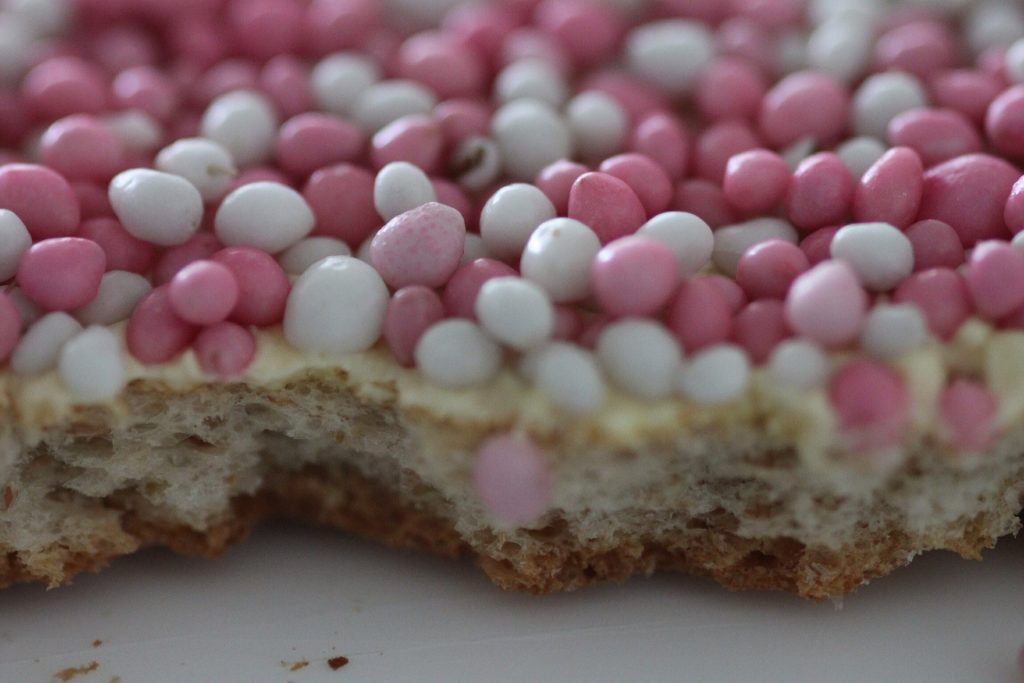New frontier experiences on my gastronomic journey through the Netherlands

When a baby is born, this happy event is of course duly celebrated, and in Germany there are numerous possibilities for this. In my homeland, the Ruhr area, where things tend traditionally to be rather robust, fathers often buy a round in the pub and let “the baby pee”. I’ve also heard of the grandmothers’ huge cake creations, but I don’t know of any nationwide tradition of celebrating the arrival of a baby across state borders.
In the Netherlands it’s different: in the whole country when the baby is born, there is almost the same culinary variant to which people are invited -beschuitjes with muisjes. “What’s that?” – you will ask yourself.
Beschuitjes are a kind of round rusk, but less sweet than the German rusk. Butter or margarine is spread on the beschuitje and the muisjes are sprinkled on it. And since the muisjes tradition is older than the trend towards gender neutrality, it is of course pink muisjes for a girl and light blue for a boy. (And when a baby is born into the royal family, you eat muisjes in the Dutch national colour orange all over the country!)
The muisjes consist of aniseed and are covered with icing sugar. This also makes sense, as anise used to be a tonic for women after giving birth. It was supposed to support breast milk production. However, consumption usually makes a subsequent use of a vacuum cleaner necessary, because the combination of rusk crumbs and spilt muisjes otherwise invade the whole house. Here dog owners may have a home advantage.

Independent of birth celebrations you can also buy crushed muisjes to enhance your breakfast. They then have the consistency of a white powder. When I first stayed with my husband in a Dutch “Bed and Breakfast” and we sat down at the breakfast table in the morning, I was quite shocked. I said that although I knew that the Dutch drug policy was more liberal than in Germany, I thought that serving cocaine for breakfast was quite exaggerated. This misunderstanding made the hosts giggle. And it confirms once again that a lot in life is not what it seems at first glance to be.
Text: BBR
Englische Übersetzung: BCO

